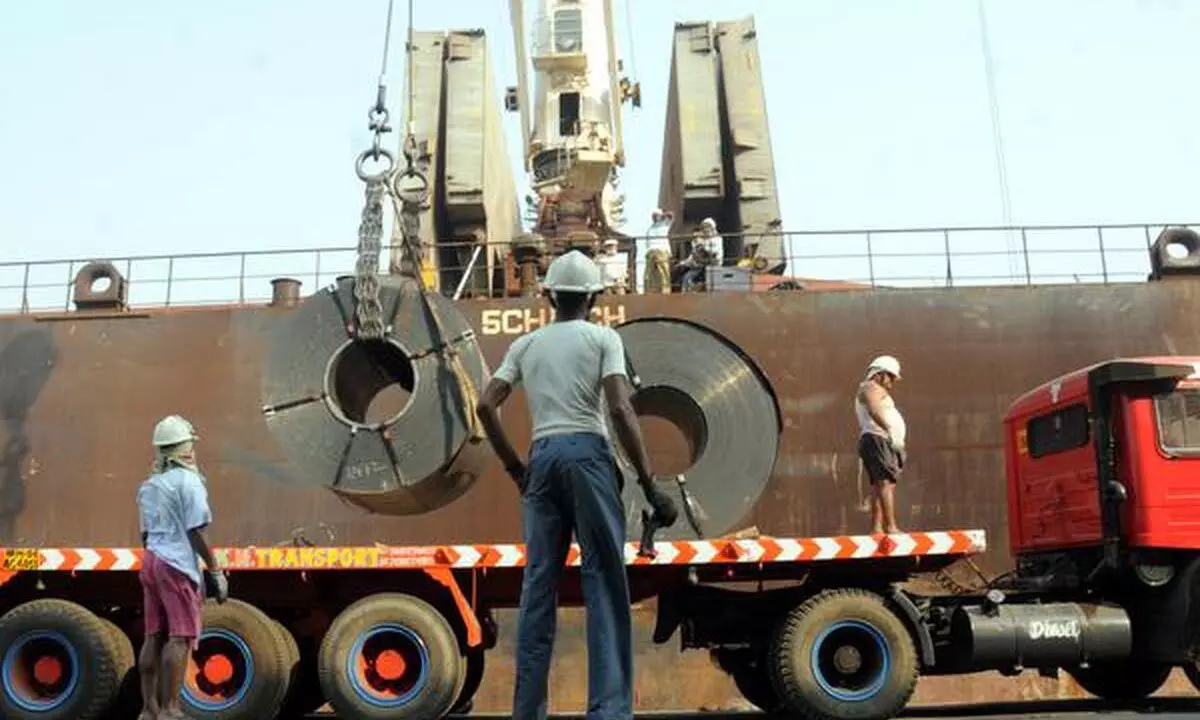EEPC urges govt to iron out payment issues with Russia
Requests Centre to direct Indian banks, both state-owned and private, to accept Russian payments and credit to exporter’ bank accounts by giving bank realisation certificate (BRC)
image for illustrative purpose

Seeking Relief
• Though most of the state-owned banks in India were crediting Russian payments to the exporters' accounts, many private sector banks were not cooperating, EEPC said
• Asks Indian govt to look into higher exchange rates being charged by certain Russian banks resulting in increased transaction costs
• Urges for evolving alternative payment mechanisms for Myanmar
• EEPC also requested commerce ministry to include steel sector under RoDTEP
Hyderabad: Engineering Exports Promotion Council (EEPC) has reached out to the Union Commerce and Industry Minister Piyush Goyal seeking to sort out the payment issues with Russia amid global sanctions and direct the Indian banks, both state-owned and private, to accept Russian payments and credit to exporter' bank accounts by giving bank realisation certificate (BRC).
EEPC India Chairman Arun Kumar Garodia in a meeting with the minister also urged for evolving alternative payment mechanisms for Myanmar.
Though most of the state-owned banks in India were crediting Russian payments to the exporters' accounts, many private sector banks were not cooperating, said Garodia, while asking the Indian government to look into higher exchange rates being charged by certain Russian banks like SberBank that were resulting in increased transaction cots. EEPC also took to the notice of the minister that banks like UCO Bank were dealing only with the customers having accounts with them and urged steps to make the rules flexible.
Some 12-13 small Russian banks that were not on the list of global sanctions were transferring the payments from the Russian side to the Indian exporters' banks in US dollars and many Indian banks were crediting the payments to the exporters' accounts by giving the BRCs. Private sector banks like Axis Bank and public sector banks like Canara Bank were not accepting the Russian payments, leading to issues to the Indian exporters of engineering goods, said Garodia.
EEPC India has also requested the Indian government to discuss with the European Union, the key market for the Indian engineering industry, on the issue of withdrawal of Generalised Scheme of Preferences (GSP) benefits from January 2023. India is currently one of the 11 standard GSP beneficiaries of EU GSP.
Further, Garodia has also urged India's commerce ministry to find alternative payment mechanisms on trade with Myanmar since the Rupee-trade facility may not be extended to Myanmar as they are on the Financial Action Task Force (FATF) list of high-risk countries.
Apart from urging the government to withdraw the 15 per cent export duty on stainless steel and alloy steel items that had significantly affected engineering exports, EEPC India has also requested the ministry to include the steel sector under the Remission of Duties and Taxes on Exported Products (RoDTEP) scheme given the fact that steel is the most widely used raw material in the engineering industry.

